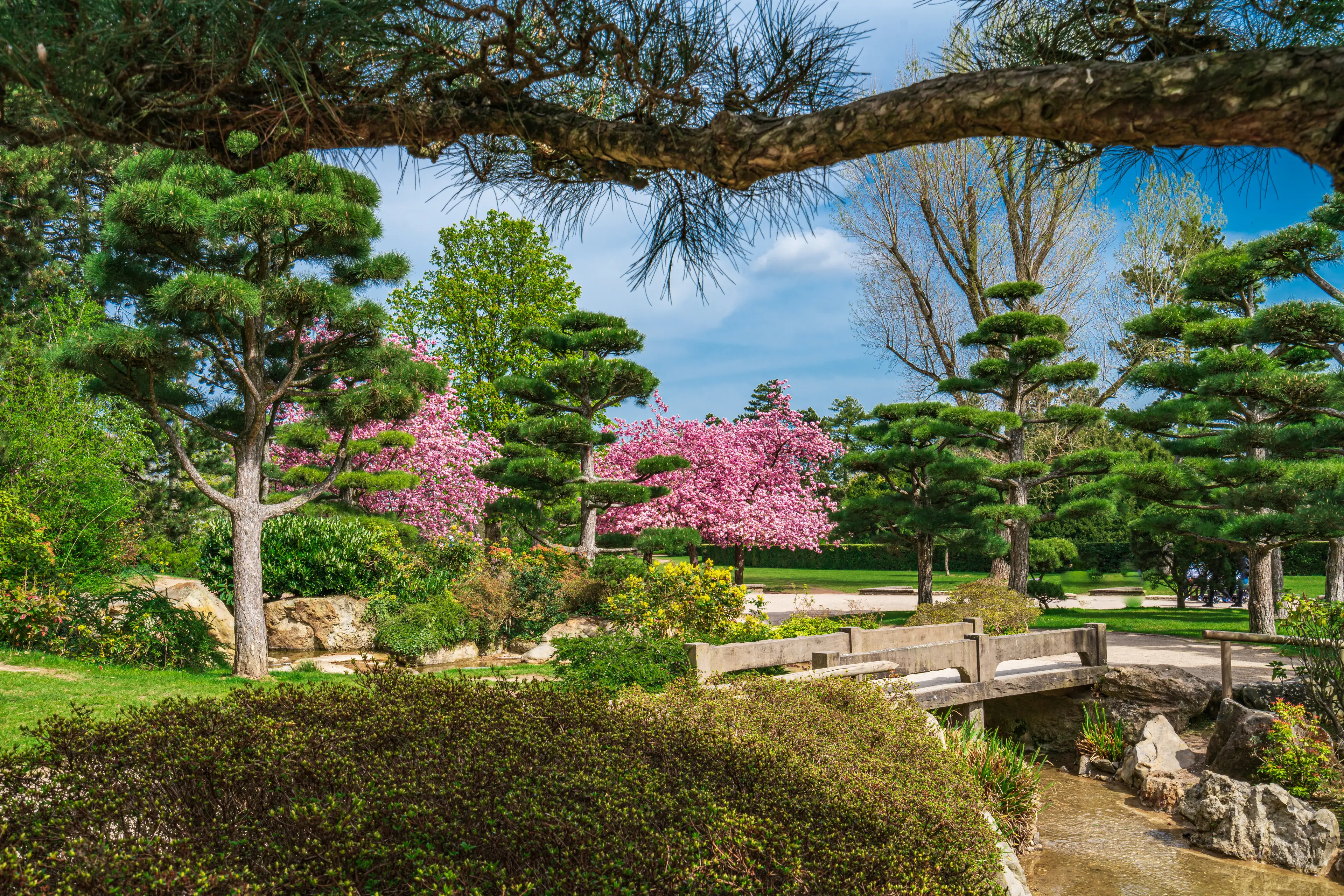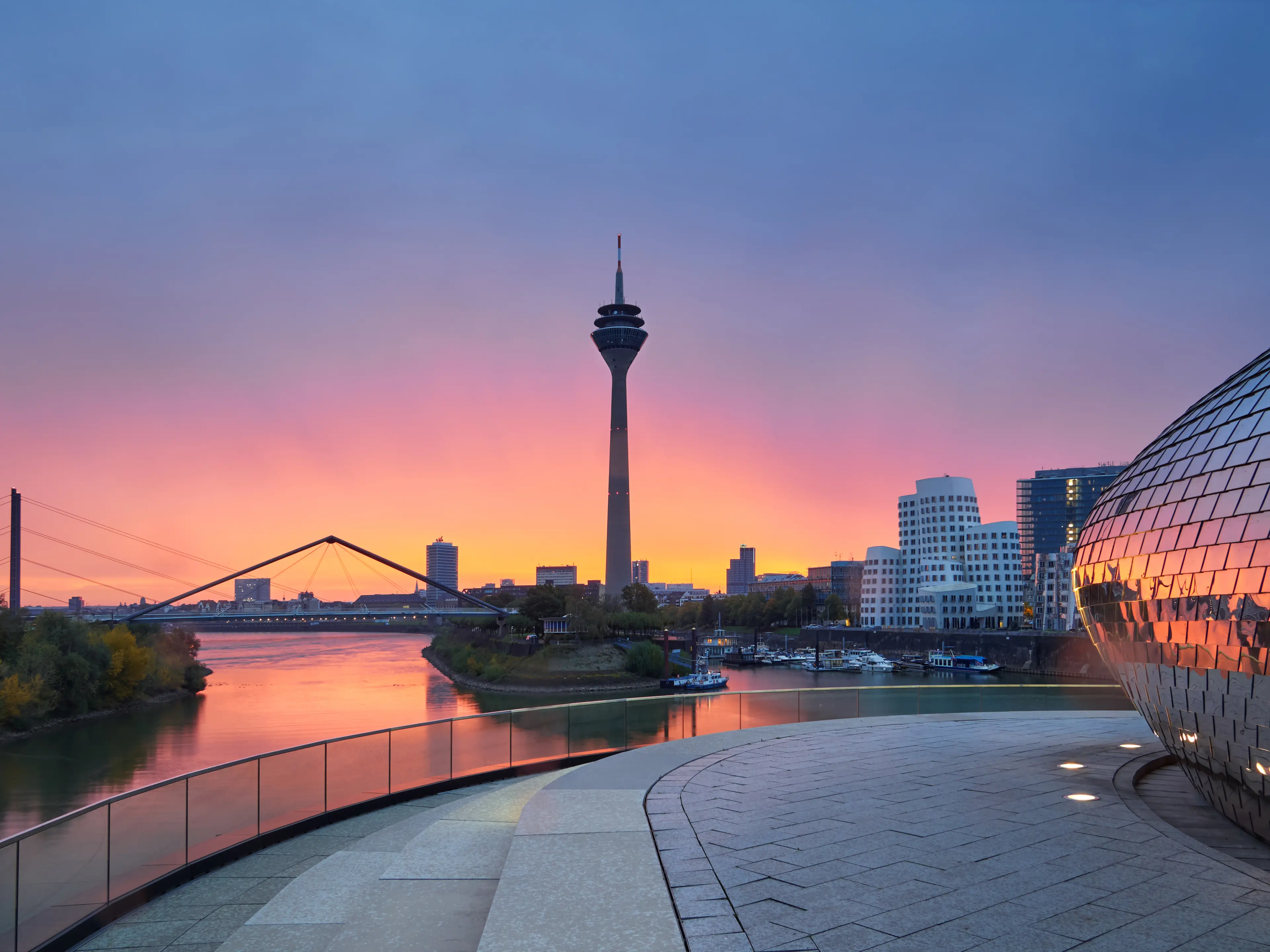4-Day Dusseldorf Local Experience: Family Nightlife & Shopping Itinerary
Dusseldorf, Germany
4 days
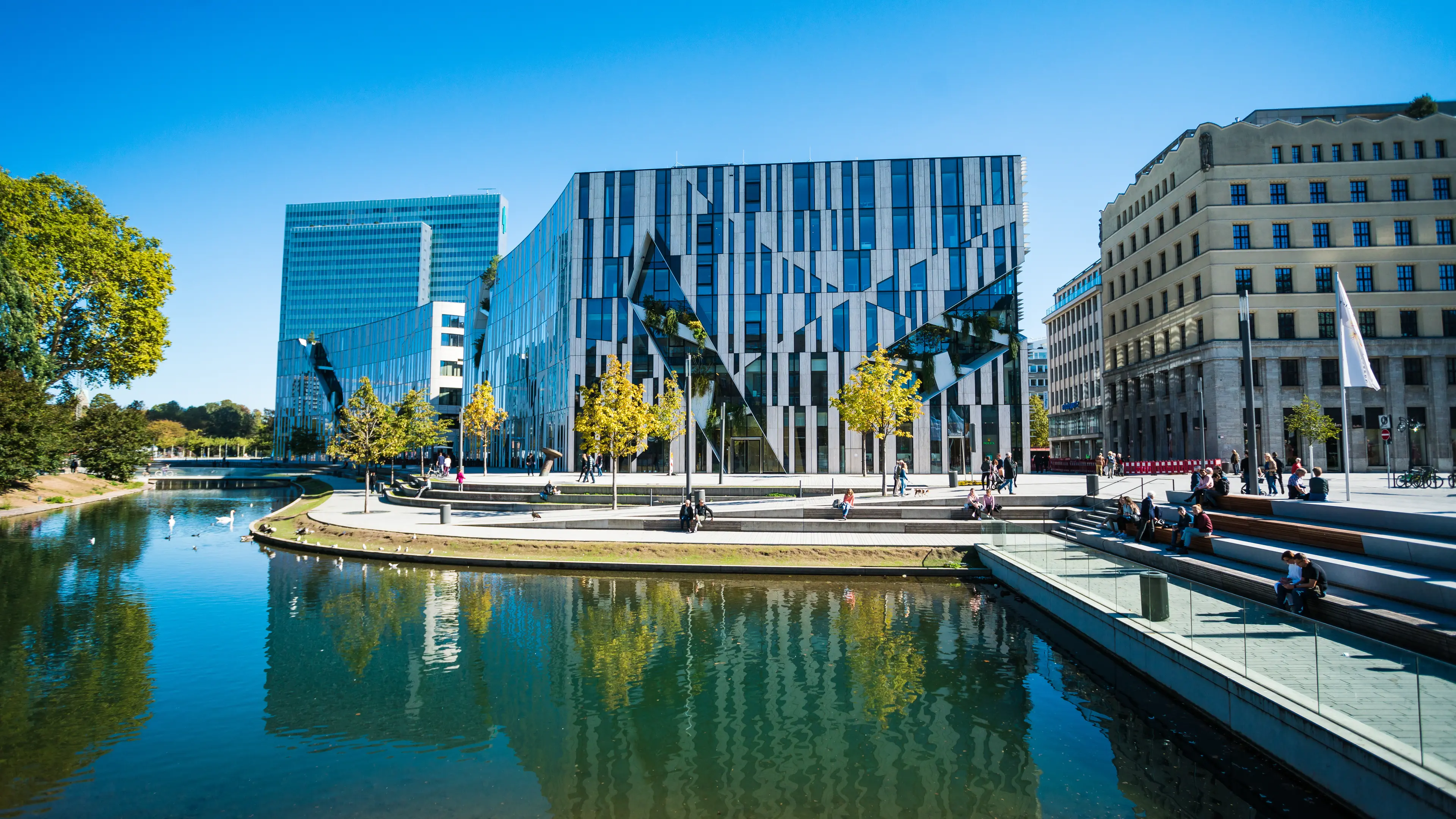
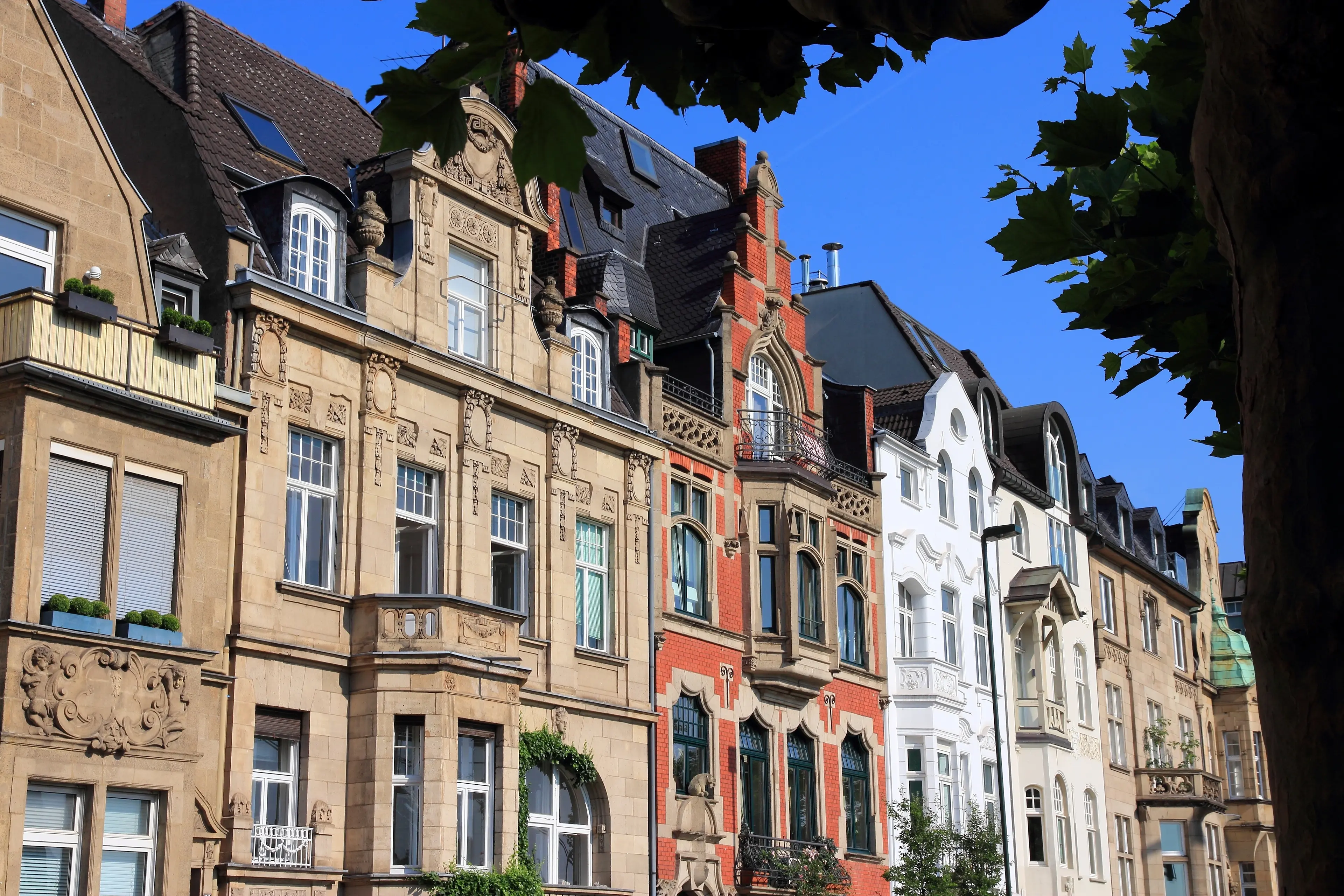


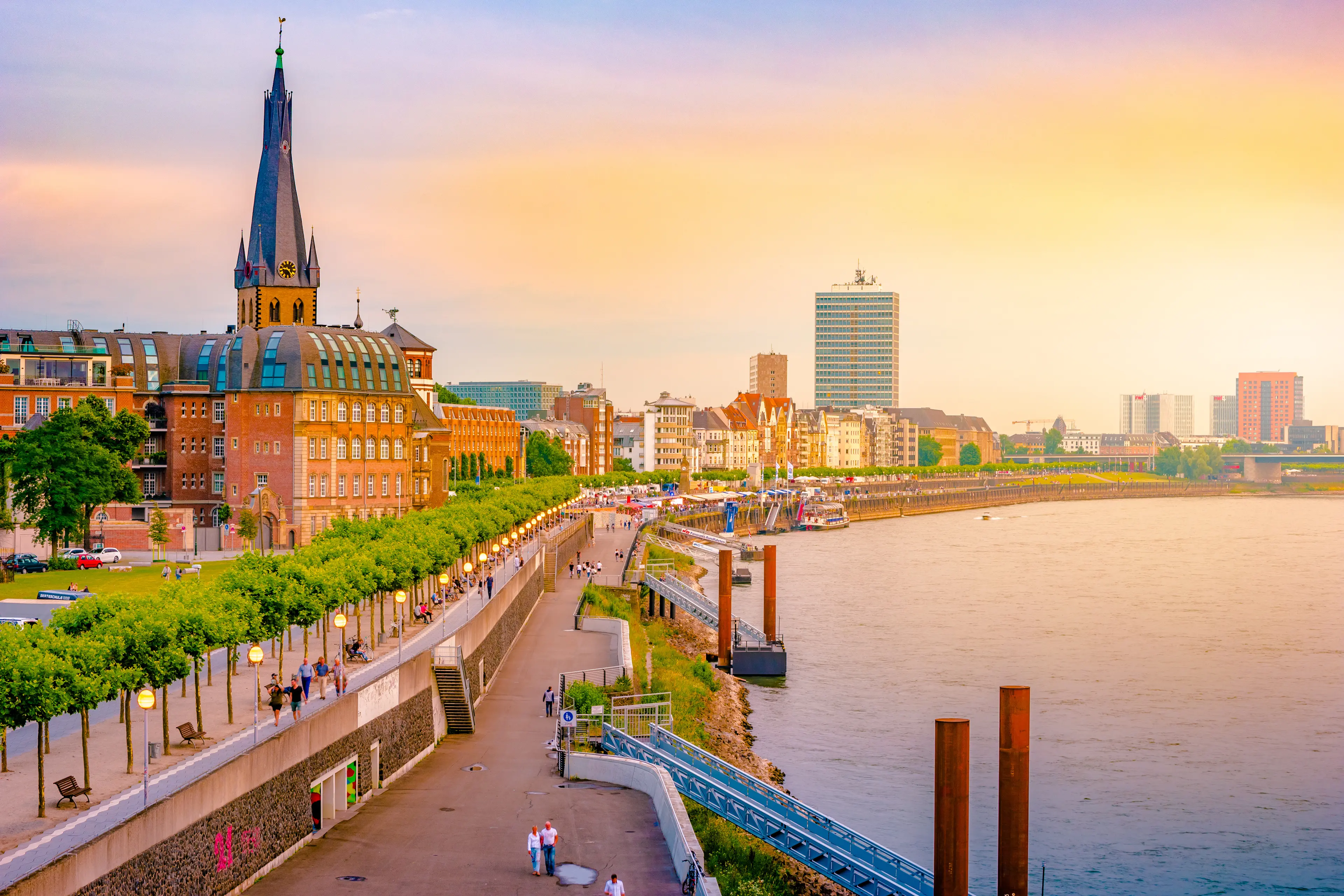
About Dusseldorf, Germany
Experience the vibrant city of Dusseldorf, Germany, where modernity meets tradition. This cosmopolitan city is renowned for its pioneering influence on international fashion and art. Explore the famous Königsallee, a luxurious shopping street, or immerse yourself in the city's rich history at the Rhine Embankment Promenade. Visit the Altstadt, known as the 'longest bar in the world', offering over 300 bars and restaurants. Marvel at the city's architectural wonders like the Rhine Tower and the Gehry buildings. Don't miss the chance to witness the city's lively festivals, such as the Dusseldorf Carnival. With its blend of high-end fashion, art, culture, and historic charm, Dusseldorf promises an unforgettable travel experience.
4-Day Itinerary
Day 2
Aquazoo, Nordpark and Evening Entertainment
Morning
Visit the Aquazoo Löbbecke Museum, a combination of a zoo, an aquarium and a natural history museum, a perfect place for families.
Lunch
Have lunch at a local café, offering a variety of sandwiches, salads and pastries.
Afternoon
Spend the afternoon at the Nordpark, a beautiful park with themed gardens, playgrounds and a Japanese garden.
Dinner
Have dinner at a restaurant offering local and international dishes.
Evening
Spend the evening at a family-friendly theater or concert in the city center.
Day 3
Baroque Palace, Modern District and Evening Fun
Morning
Visit the Schloss Benrath, a beautiful baroque palace with a museum and a large park.
Lunch
Enjoy lunch at a local restaurant near Schloss Benrath, offering traditional German dishes.
Afternoon
Spend the afternoon exploring the MedienHafen, a modern district with unique architecture and a variety of shops and entertainment options.
Dinner
Have dinner at a restaurant in the MedienHafen, offering a variety of cuisines.
Evening
End the day with a visit to a family-friendly entertainment venue in the MedienHafen.
Day 4
Human Evolution, Wildlife Park and Farewell Stroll
Morning
Start the day with a visit to the Neanderthal Museum, a museum dedicated to human evolution.
Lunch
Have lunch at a local café near the Neanderthal Museum, offering a variety of light meals and pastries.
Afternoon
Spend the afternoon at the Wildpark Grafenberg, a wildlife park where you can see a variety of animals in their natural habitat.
Dinner
Enjoy dinner at a family-friendly restaurant in the city center.
Evening
End your trip with a leisurely stroll along the Rhine River Promenade, enjoying the beautiful night view of the city.
Attractions in Itinerary (9)
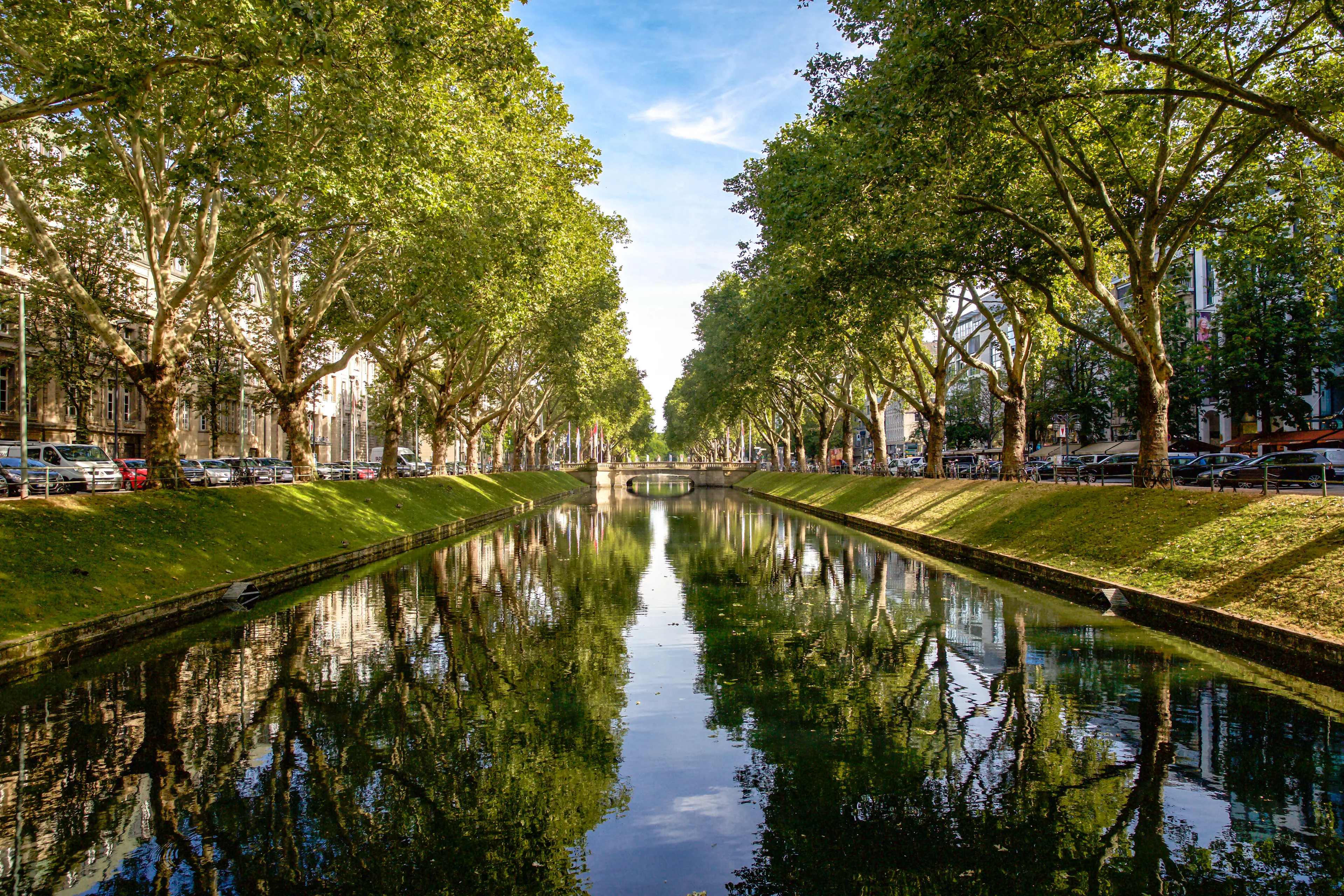
1Königsallee
Königsallee, often referred to as the 'Kö', is a premier shopping street in Dusseldorf known for its high-end boutiques and luxury brands.
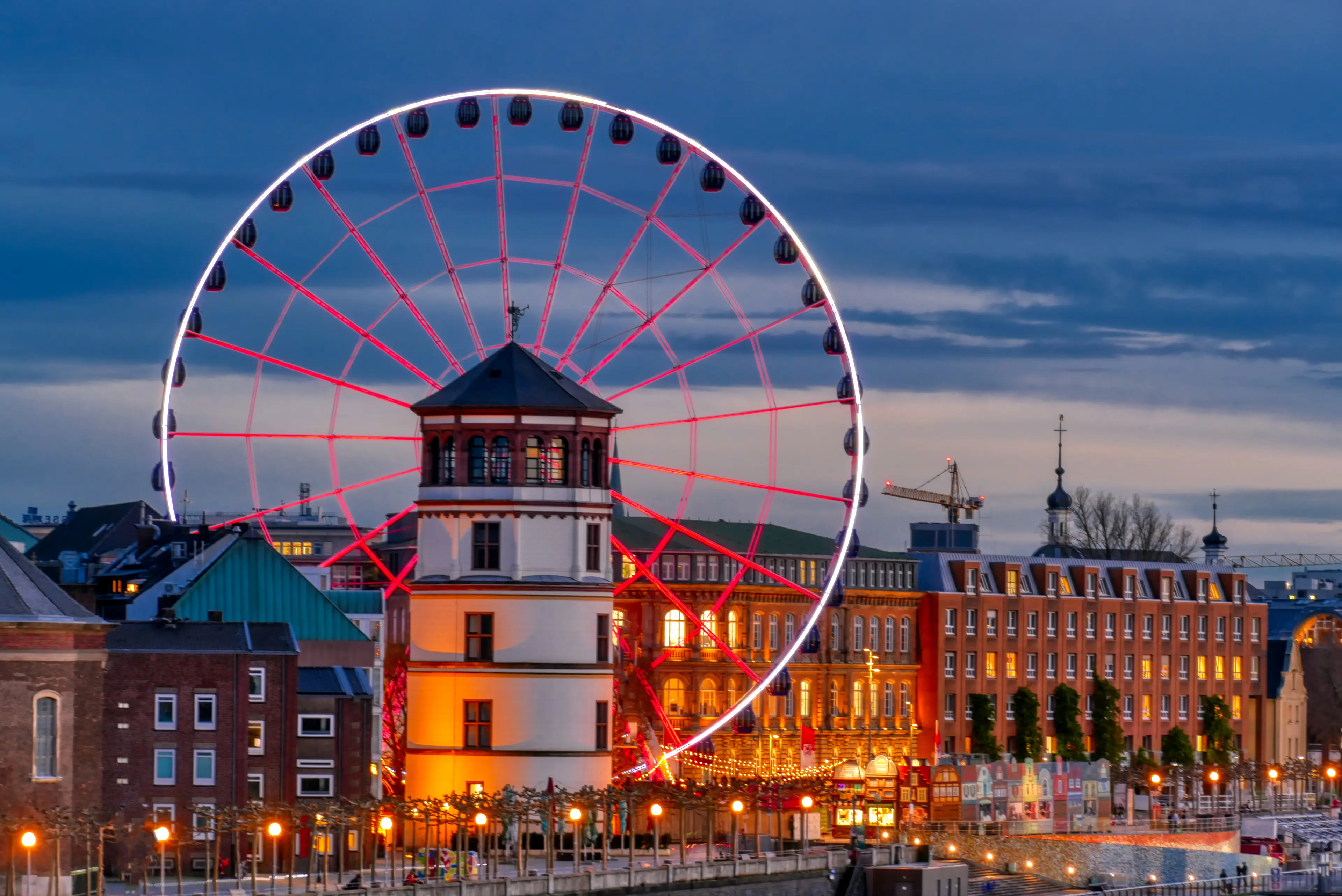
2Altstadt
Known as the 'longest bar in the world', Altstadt is a historic neighborhood with over 300 bars and restaurants.
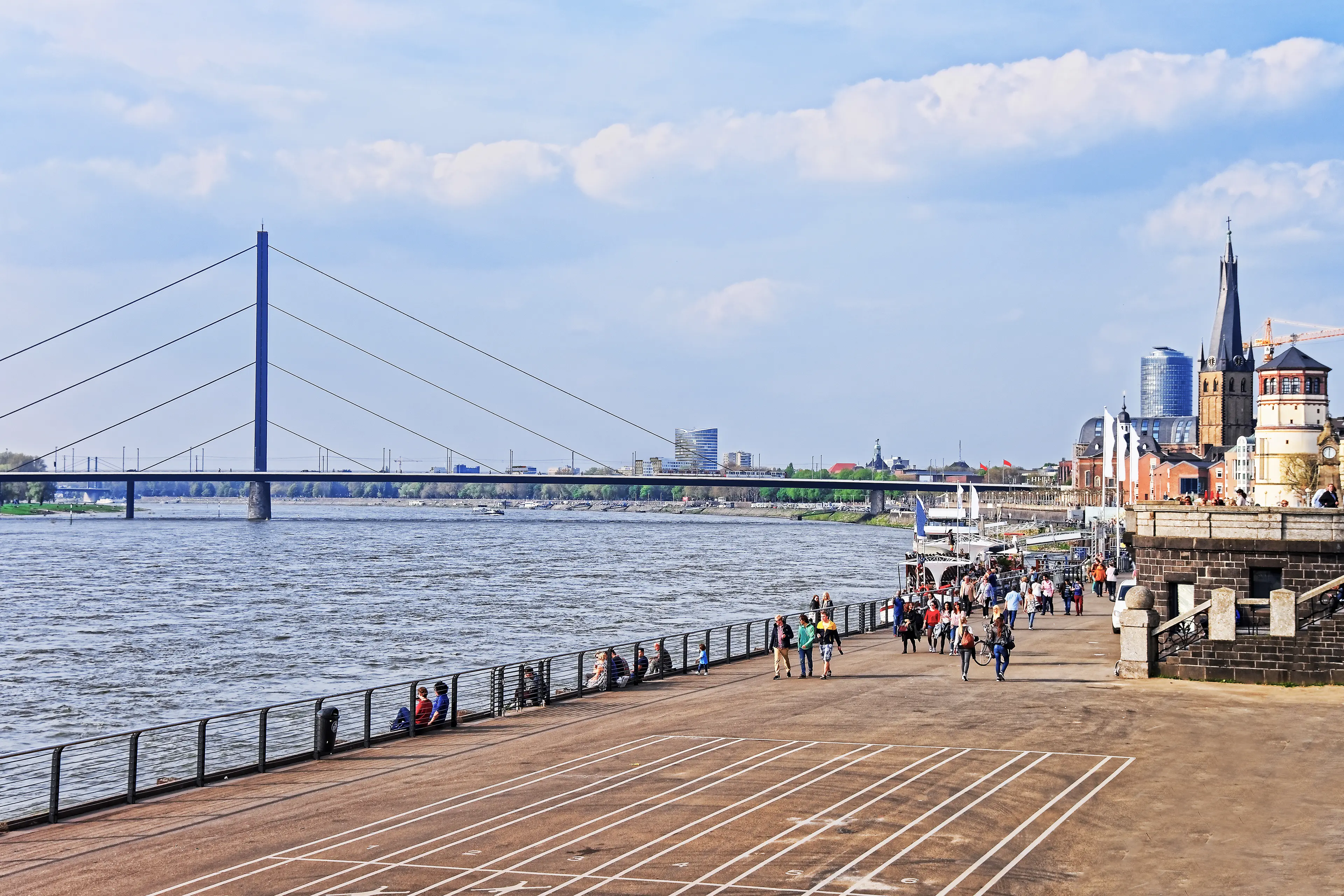
3Rhine River Promenade
A beautiful promenade along the Rhine River offering scenic views, walking paths, and a variety of restaurants and cafes.

4Aquazoo Löbbecke Museum
A combination of a zoo and a natural history museum, featuring a variety of aquatic animals and insects.
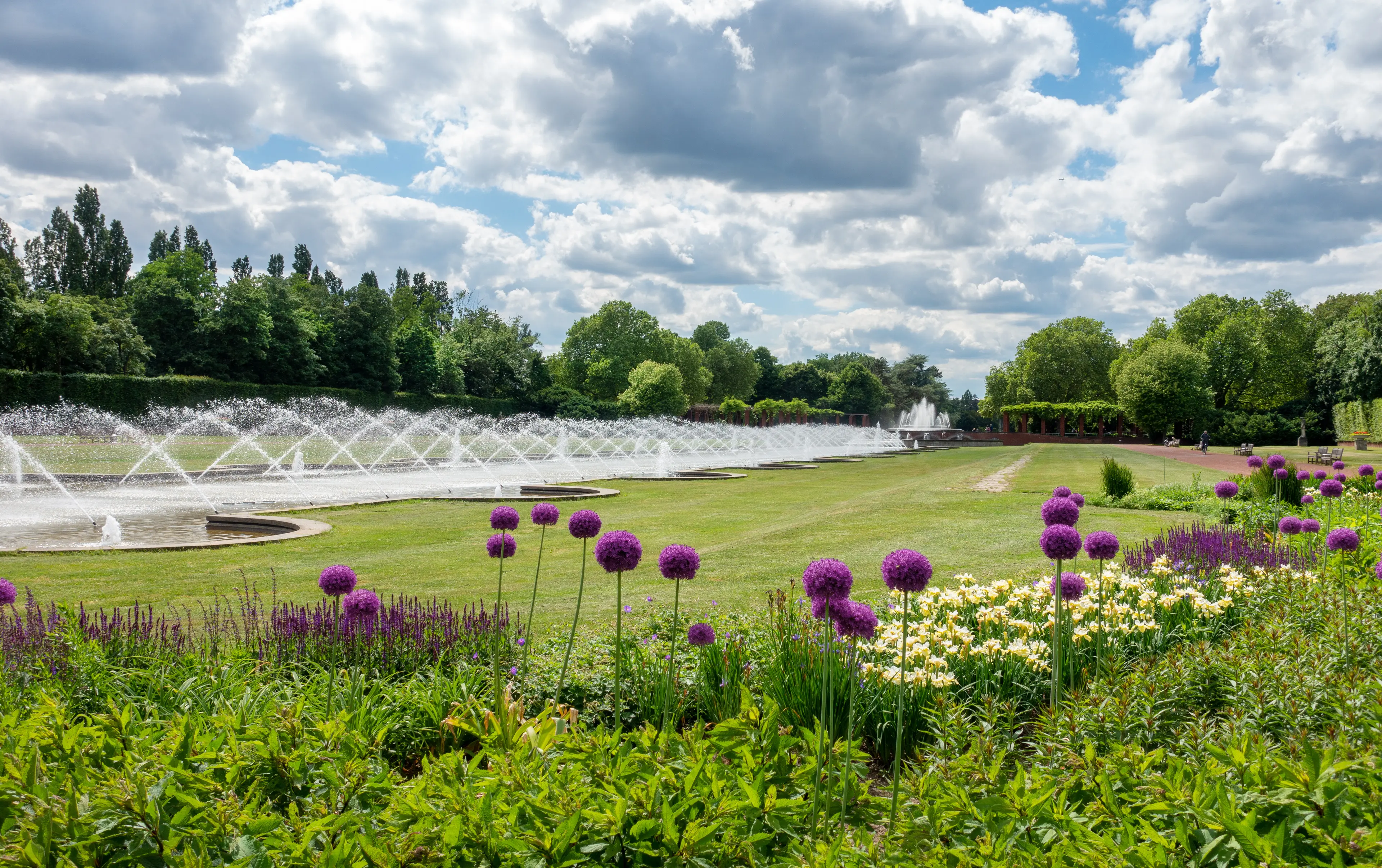
5Nordpark
A large public park known for its beautiful gardens, fountains, and sculptures.

6Schloss Benrath
A beautiful Baroque-style maison de plaisance in Dusseldorf's southern district, Benrath. It is now a museum and a popular tourist attraction.

7MedienHafen
MedienHafen is a modern district known for its innovative architecture, including buildings designed by Frank Gehry.
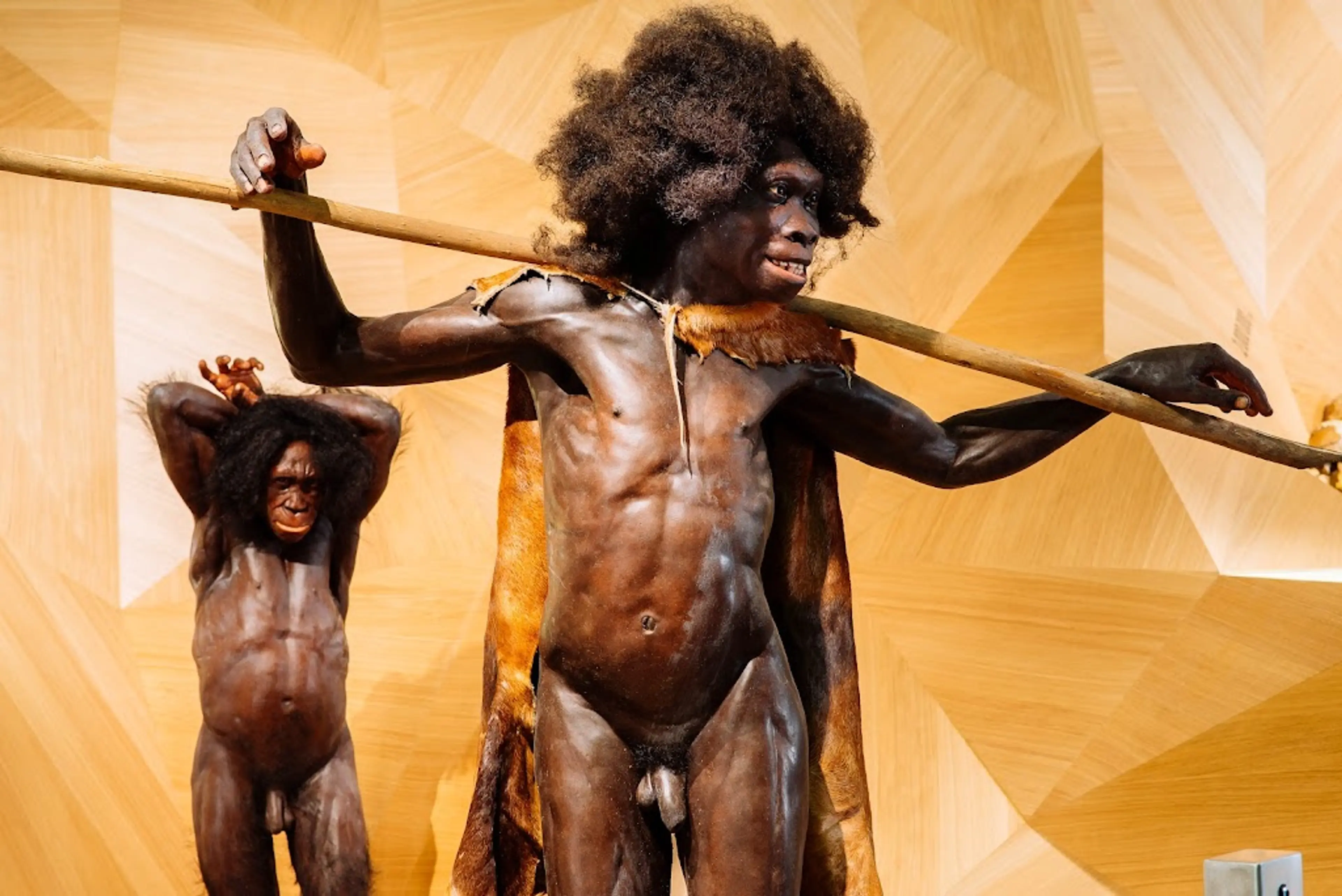
8Neanderthal Museum
A museum dedicated to the history of the Neanderthals, located near the site where the first Neanderthal man was found.
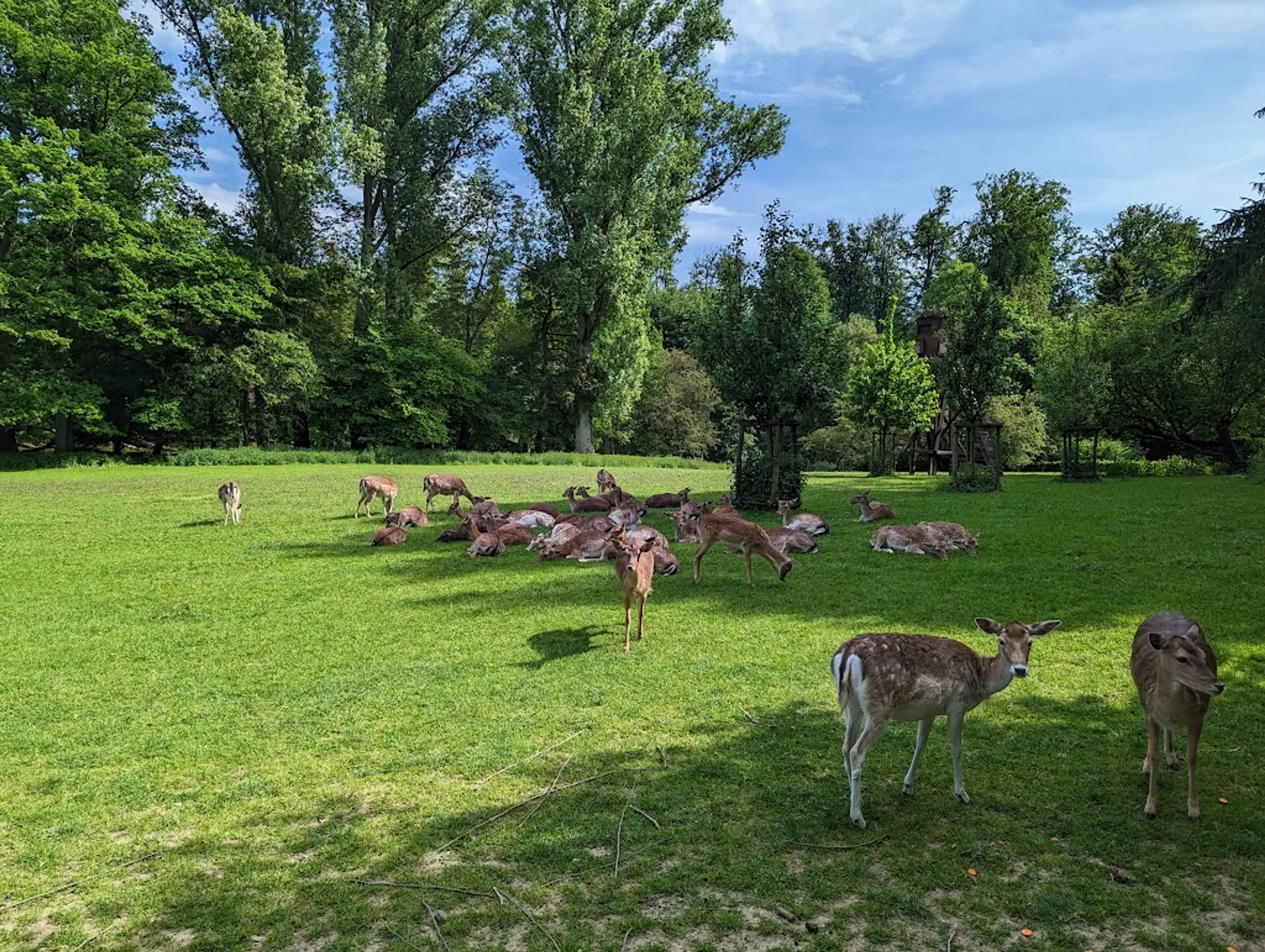
9Wildpark Grafenberg
A large wildlife park located in the Grafenberg district of Dusseldorf. It is home to a variety of native German species and is a popular destination for families.
Local Food and Drinks (11)
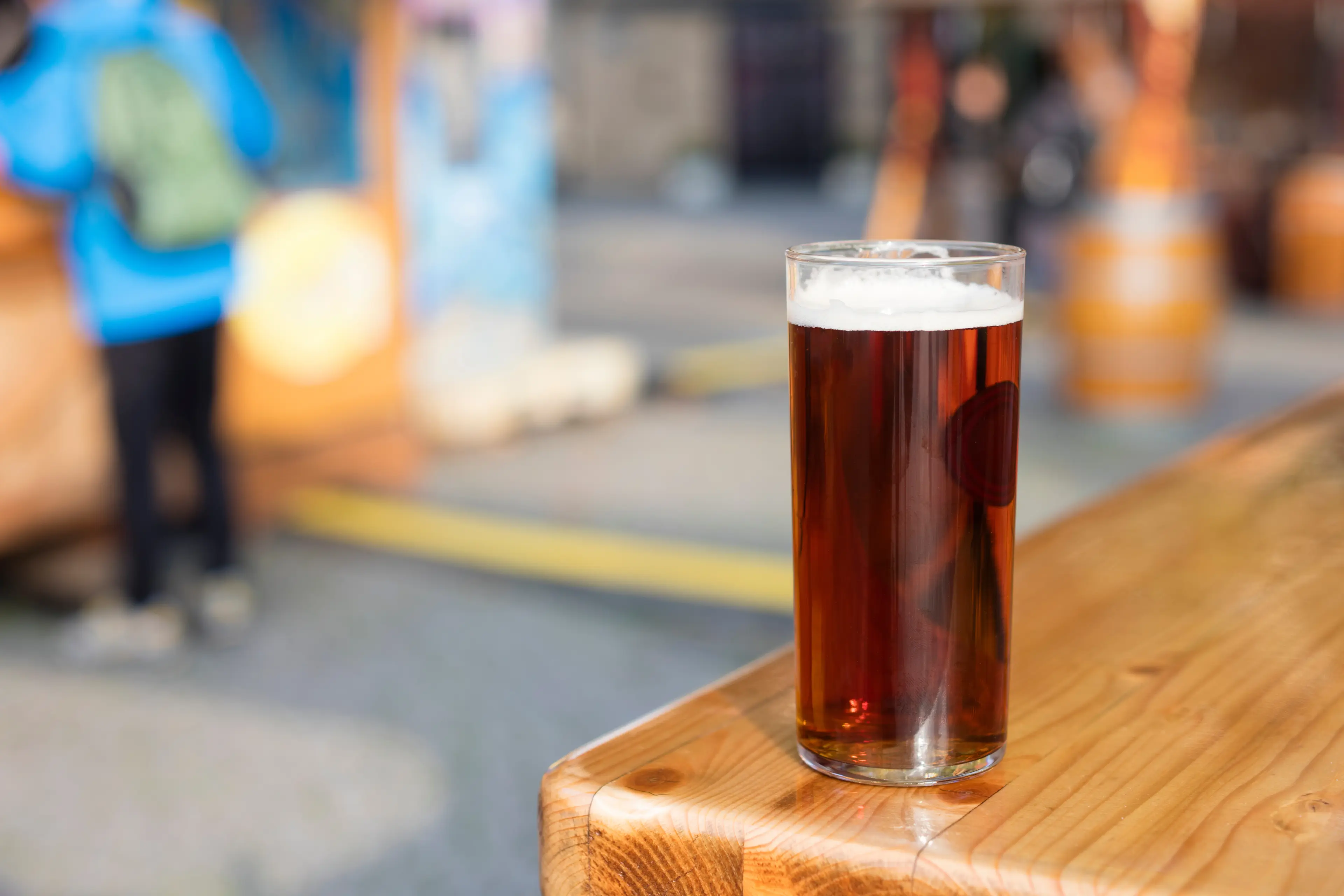
Altbier
Altbier is a local beer in Dusseldorf, Germany. It is a top-fermented beer that is brewed according to an old tradition.
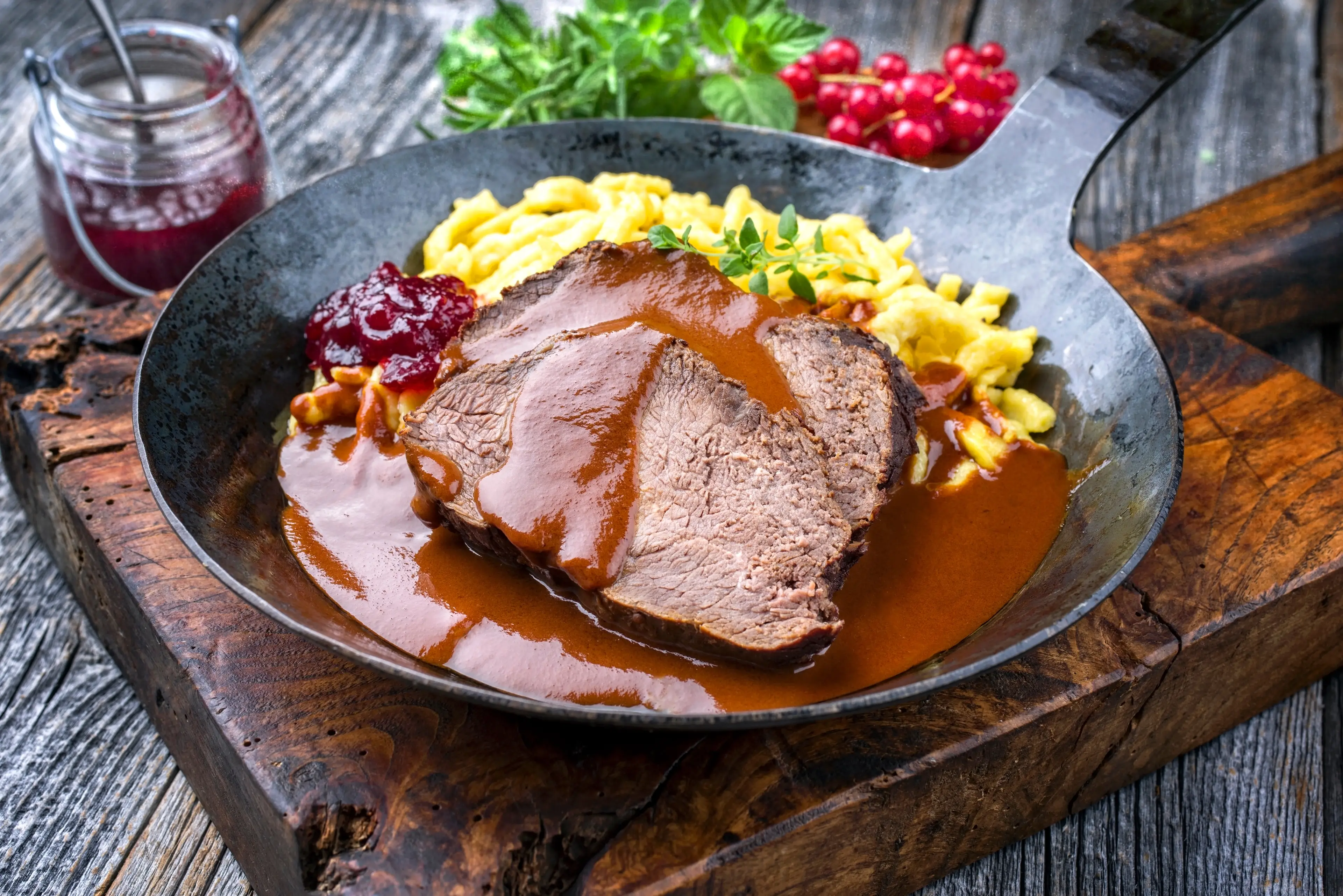
Sauerbraten
Sauerbraten is a pot roast, usually of beef, marinated before being slow-cooked. It is a specialty of the Rhineland region, which includes Dusseldorf.
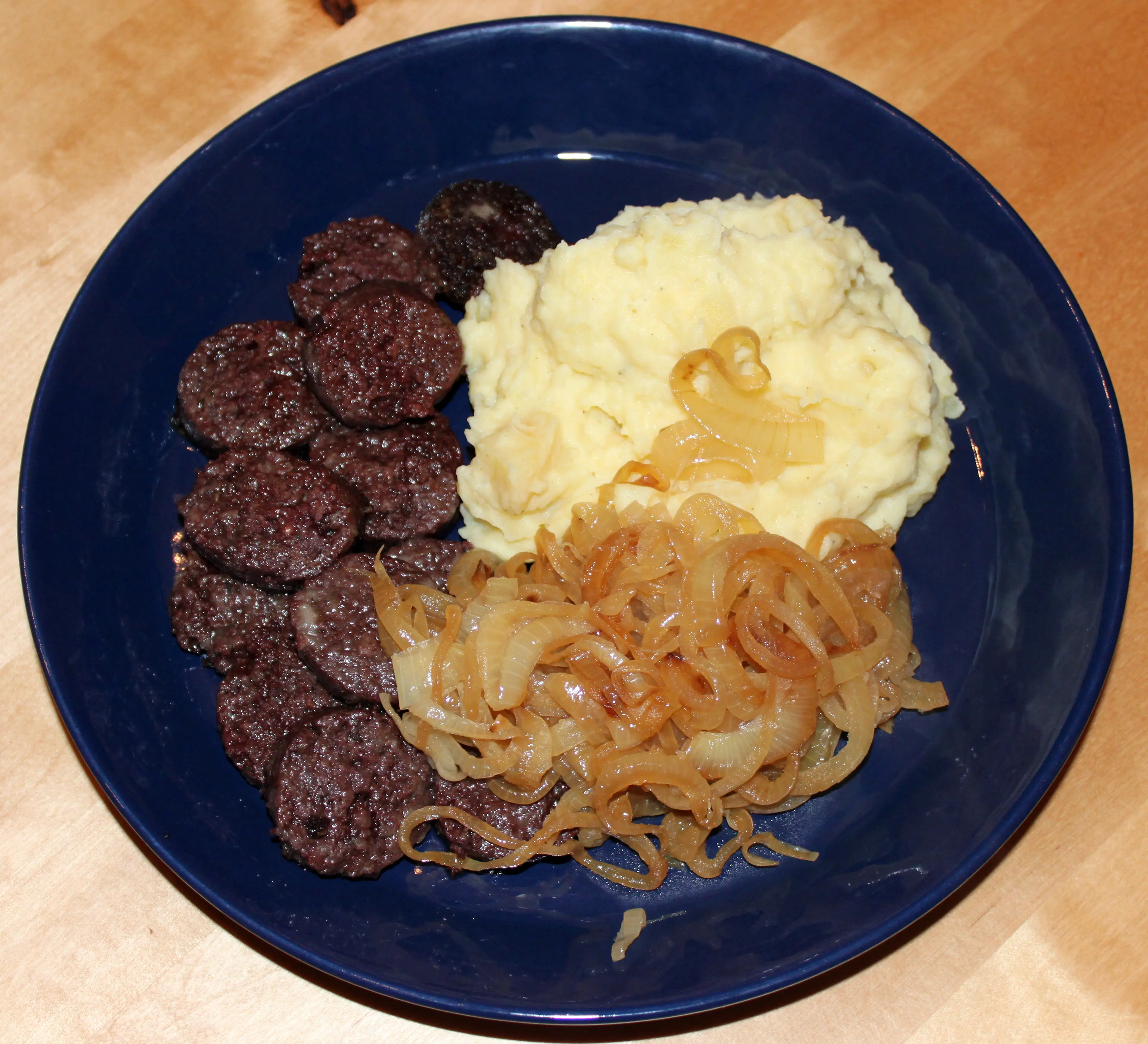
Himmel und Ääd
Himmel und Ääd, or Heaven and Earth, is a traditional dish from Dusseldorf. It consists of black pudding, fried onions, mashed potatoes (earth), and apple sauce (heaven).

Rheinischer Döppekooche
Rheinischer Döppekooche is a traditional potato dish from the Rhineland region. It is a hearty, oven-baked potato cake, often served with apple sauce.
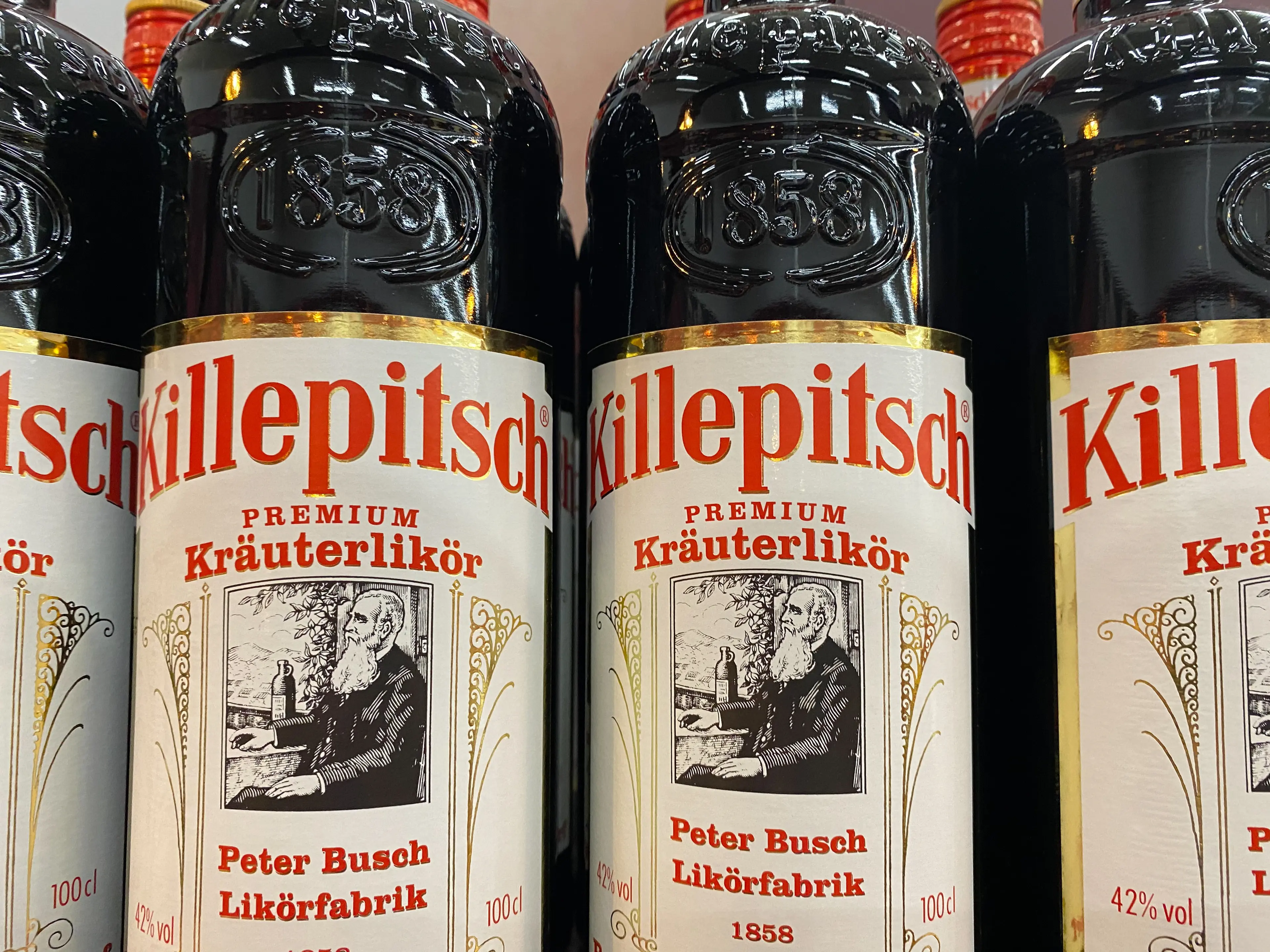
Killepitsch
Killepitsch is a herbal liqueur from Dusseldorf. It is a sweet, dark red, and strong drink, often served as a digestif.

Mettwurst
Mettwurst is a type of German sausage, similar to salami. It is often served as part of a hearty breakfast in Dusseldorf.

Rievkooche
Rievkooche are potato pancakes, a popular street food in Dusseldorf. They are often served with apple sauce.
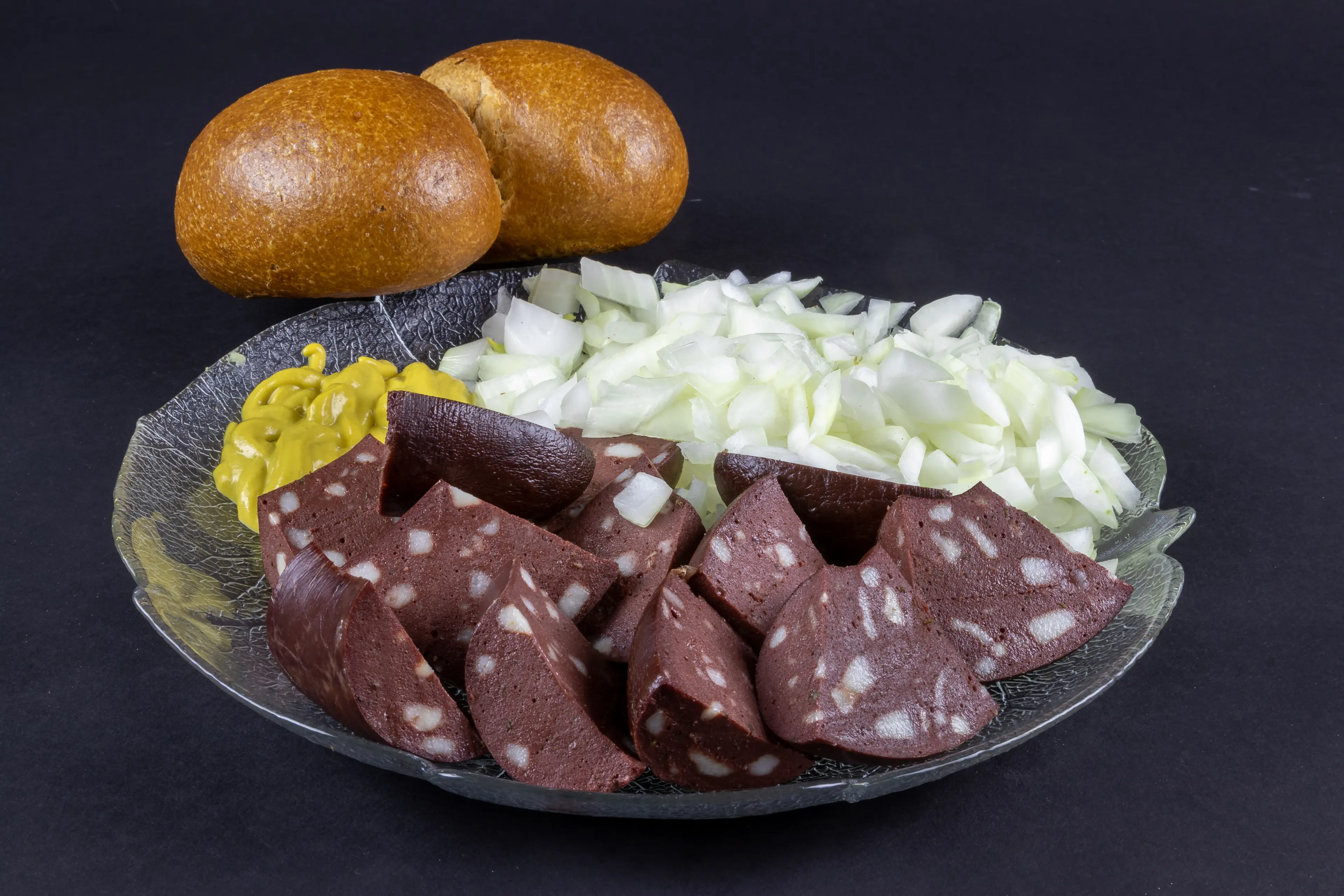
Flönz
Flönz is a type of blood sausage, traditional to the Rhineland region. It is a key ingredient in the local dish 'Himmel und Ääd'.
Musik
Musik is a traditional salad from Dusseldorf, made with onions, oil, vinegar, and caraway seeds. It is often served with a hearty bread.
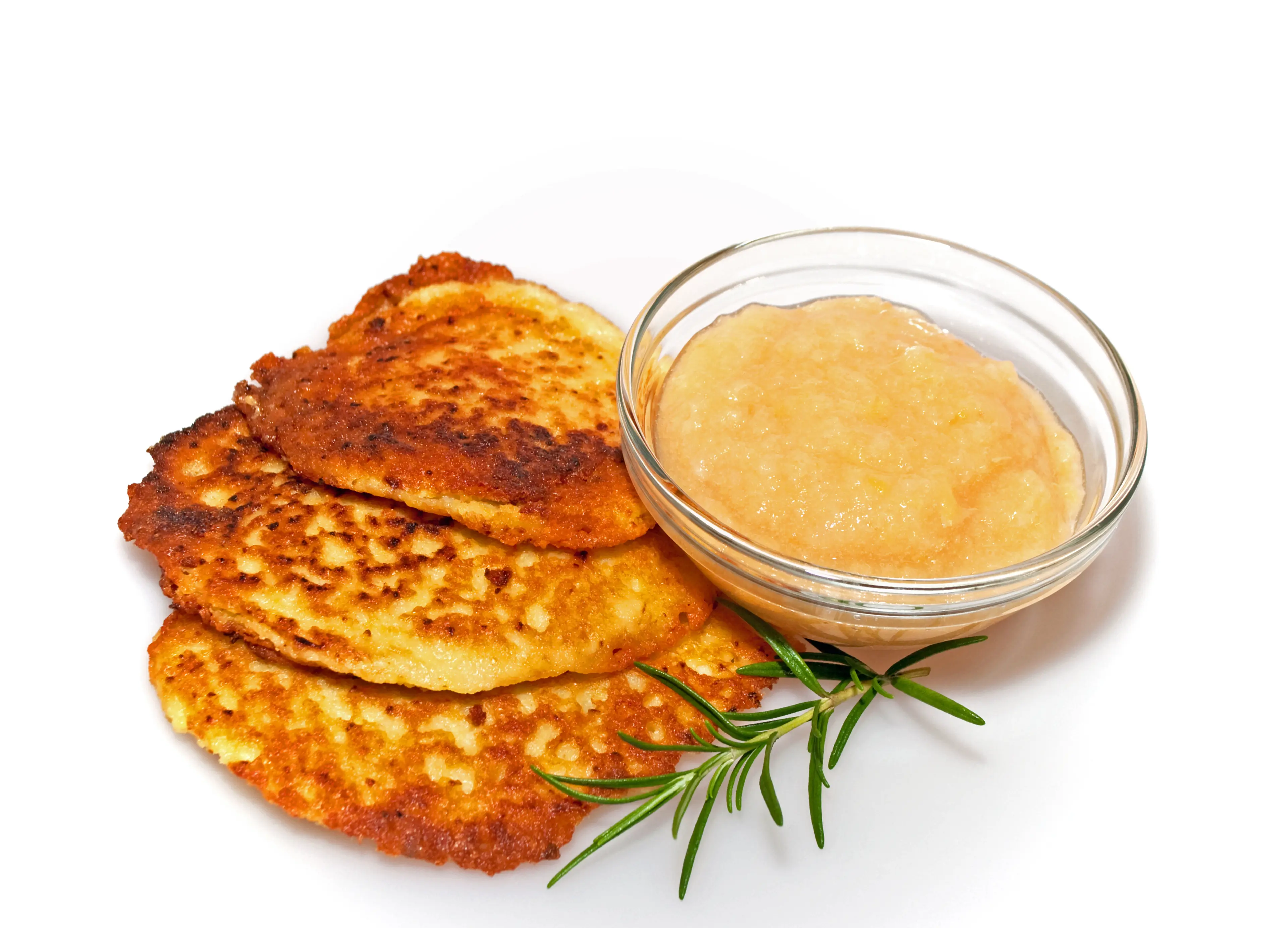
Reibekuchen
Reibekuchen are another type of potato pancake, similar to Rievkooche. They are a popular snack in Dusseldorf, often served with apple sauce or quark.
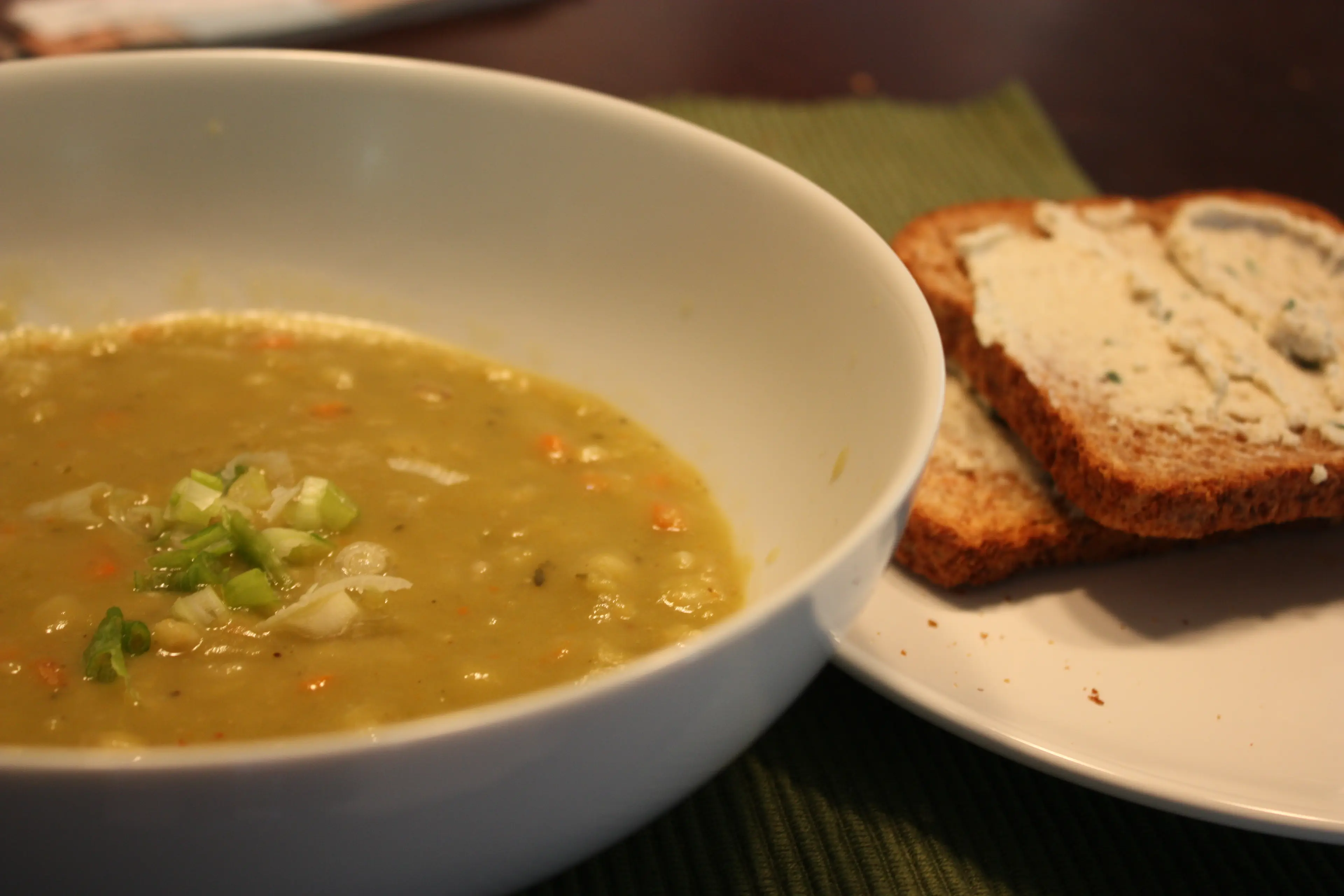
Ähzezupp
Ähzezupp, or pea soup, is a traditional dish in Dusseldorf. It is a hearty soup made with split peas, potatoes, and smoked sausage.
Best time to visit
The best time to visit Dusseldorf, Germany, is during the summer months from May to September. During this period, the weather is warm and pleasant, perfect for sightseeing and outdoor activities. The city also hosts several events and festivals during these months, such as the Dusseldorf Jazz Rally in May and the Largest Fair on the Rhine in July, which adds to the overall experience. However, if you prefer a quieter and less crowded time, the shoulder seasons of spring (April to June) and fall (September to November) are also good options with mild weather.
How to get around
Public Transportation
Dusseldorf has an extensive public transportation system, which includes trams, buses, and the U-Bahn (underground subway). The Rheinbahn operates the majority of these services. Tickets can be purchased at vending machines at the stations, and they are valid for all forms of public transportation within the city.
Taxi
Taxis are readily available throughout Dusseldorf. They can be hailed on the street, picked up at taxi stands, or booked in advance. All taxis use meters, and drivers are generally honest and reliable.
Ridesharing
Ridesharing services, such as Uber, are available in Dusseldorf. This can be a convenient option for getting around, especially if you're not familiar with the city or don't speak German. You can book a ride using the app on your smartphone.
Bicycle
Dusseldorf is a bike-friendly city with many dedicated bike lanes and paths. You can rent a bike from one of the many rental shops in the city, or use the city's bike-sharing program, Nextbike.
Car Rental
Renting a car can be a good option if you plan to explore outside of Dusseldorf. However, parking can be difficult and expensive in the city center, and the city's narrow, one-way streets can be challenging to navigate. Most international car rental companies have offices in Dusseldorf.
Walking
Dusseldorf's city center is compact and pedestrian-friendly, making walking an excellent way to get around. Many of the city's main attractions, including the Old Town, the Rhine Promenade, and the Königsallee shopping street, are within easy walking distance of each other.
River Ferry
The Rhine River is a major feature of Dusseldorf, and there are several ferry services that operate on the river. These can be a scenic and enjoyable way to get around, particularly in the warmer months.
Train
Dusseldorf is well-connected to other German cities and European destinations by train. The city's main train station, Dusseldorf Hauptbahnhof, is a major transportation hub. Regional and long-distance trains depart from here regularly.
Important information
Currency€ EUR
Time zoneUTC+1
Driving sideRight
Emergency phoneAmbulance and Fire: 112; Police: 110
Drinking waterYes
Power sockets
Voltage230 V
Things to know about Dusseldorf, Germany as a first time visitor
1
Dusseldorf is located in the western part of Germany, in the state of North Rhine-Westphalia.
2
The official language is German, but English is widely spoken in tourist areas and hotels.
3
The currency used is the Euro (€). Credit cards are widely accepted, but it's always good to have some cash on hand for smaller establishments.
4
Dusseldorf is known for its fashion and art scene. It's a good idea to pack some smart casual clothes if you plan on visiting any upscale restaurants or events.
5
The city is very walkable, but it also has an excellent public transportation system, including trams, buses, and the U-Bahn (underground subway).
6
Dusseldorf is generally safe for tourists, but like any city, it's important to stay aware of your surroundings and keep your belongings secure.
7
Tipping is customary in Germany. A tip of 10-15% is usually added to your bill in restaurants, but it's also common to round up to the nearest Euro in bars and taxis.
8
The city has a temperate maritime climate. Summers (June to August) are warm with temperatures ranging from 68°F to 77°F (20°C to 25°C), while winters (December to February) can be cold with temperatures ranging from 32°F to 41°F (0°C to 5°C).
9
Germany uses the Type F electrical plug, so you may need to bring an adapter if your devices use a different type.
10
Dusseldorf is in the Central European Time Zone (CET), which is 1 hour ahead of Coordinated Universal Time (UTC+1).
11
The city is known for its Altbier, a type of German beer. It's worth trying if you're a beer enthusiast.
12
Smoking is banned in all public buildings, including bars and restaurants. However, some places have designated smoking areas.
13
Dusseldorf has a vibrant nightlife, with many bars and clubs located in the Altstadt (Old Town) area.
14
The city is also known for its carnival celebrations, which take place in February. If you're visiting during this time, be prepared for large crowds and festive events.
15
Dusseldorf has a wide range of accommodation options to suit different budgets, from luxury hotels to budget hostels.
16
Many shops in Dusseldorf close on Sundays, except for those in train stations and airports.
17
If you're planning to use public transportation frequently, consider getting a DusseldorfCard for unlimited travel and discounts on various attractions.
18
Germany has strict laws on downloading copyrighted material, including music and movies, so avoid doing this while in the country.
19
Tap water in Dusseldorf is safe to drink, but bottled water is also widely available.
20
Emergency numbers in Germany are 112 for general emergencies and 110 for the police.
Basic German to know as a first time visitor
English phrase | Native phrase | Pronunciation | When to use it |
|---|---|---|---|
Hello | Hallo | ha-lo | Greeting someone |
Goodbye | Auf Wiedersehen | owf vee-der-zayn | Saying goodbye |
Please | Bitte | bit-te | Making a request |
Thank you | Danke | dahn-ke | Expressing gratitude |
Yes | Ja | ya | Agreeing or confirming |
No | Nein | nine | Disagreeing or denying |
Excuse me | Entschuldigung | ent-shool-dee-goong | Getting attention or apologizing |
I'm sorry | Es tut mir leid | es toot meer lite | Apologizing |
Do you speak English? | Sprechen Sie Englisch? | shprek-en zee eng-lish | Asking if someone speaks English |
I don't understand | Ich verstehe nicht | ish versteh-eh nickt | Expressing lack of understanding |
Where is...? | Wo ist...? | vo ist | Asking for directions |
Bathroom | Badezimmer | bah-deh-tsim-mer | Asking for the restroom |
Help | Hilfe | hill-fe | Asking for help |
Food | Essen | ess-en | Talking about food |
Water | Wasser | vah-ser | Asking for water |
Beer | Bier | beer | Ordering a beer |
Wine | Wein | vine | Ordering wine |
Check, please | Die Rechnung, bitte | dee reck-noong bit-te | Asking for the bill |
How much does it cost? | Wie viel kostet es? | vee feel kost-et es | Asking for the price |
Good night | Gute Nacht | goo-teh nakht | Saying goodnight |
Packing List
Clothing
Underwear (4 pairs)
Socks (4 pairs)
T-shirts (4)
Pants/Jeans (2 pairs)
Sweater or Jacket (1)
Sleepwear (1 set)
Comfortable walking shoes (1 pair)
Formal outfit for dining out (1 set)
Swimwear (if planning to swim)
Scarf, gloves, and hat (if winter)
Toiletries
Toothbrush and toothpaste
Deodorant
Razor and shaving cream
Shampoo and conditioner
Body wash or soap
Face wash and moisturizer
Sunscreen
Makeup and makeup remover
Travel-sized first aid kit
Prescription medications
Hand sanitizer
Travel documents and essentials
Passport
Driver's license or ID card
Credit and debit cards
Cash in local currency
Travel insurance documents
Hotel and transportation reservation confirmations
Guidebook or map
Phrasebook or language app
Electronics and gadgets
Smartphone
Charger for smartphone
Headphones
Camera
Charger for camera
Universal power adapter
Portable power bank
Miscellaneous items
Travel pillow and blanket
Earplugs and eye mask
Snacks
Water bottle
Books or e-reader for entertainment
Travel-sized laundry detergent
Plastic bags for dirty clothes
Umbrella or raincoat
Weather Conditions
When visiting Dusseldorf, Germany, it's important to be prepared for a temperate maritime climate. The city experiences moderate to heavy rainfall throughout the year, so packing a waterproof jacket or umbrella is a must. The summer months, from June to August, are the warmest with temperatures typically ranging from 60°F to 75°F (15°C to 24°C). This is a great time to visit if you prefer warmer weather, but do keep in mind that this is also the peak tourist season. Autumn, from September to November, sees cooler temperatures ranging from 45°F to 65°F (7°C to 18°C). The city's parks and gardens are particularly beautiful during this season as the leaves change color. Winter, from December to February, can be quite cold with temperatures often dropping to around 32°F (0°C), and occasionally lower. Snow is not uncommon during these months, so pack warm clothing and good footwear if you plan to visit during this time. Spring, from March to May, sees temperatures gradually warming up from 40°F to 60°F (4°C to 15°C). This is a lovely time to visit as the city comes to life with blooming flowers. Regardless of when you visit, remember that the weather can be unpredictable, so it's always a good idea to check the forecast before your trip and pack accordingly. Enjoy your visit to Dusseldorf!
| Month | Hi / Lo (°C) | Weather Overview |
|---|---|---|
January | 6° / -1° | January is the coldest month in Dusseldorf, with temperatures often dropping below freezing. Dress warmly and be prepared for possible snowfall. |
February | 7° / -1° | February is still quite cold, with temperatures slightly higher than January. Snowfall is less likely, but still possible. |
March | 12° / 2° | March sees a slight increase in temperature, but it's still chilly. It's a good time to visit if you enjoy cooler weather and fewer tourists. |
April | 15° / 5° | April is when spring truly begins in Dusseldorf, with temperatures rising and the city starting to bloom. It's a beautiful time to visit, especially for nature lovers. |
May | 19° / 9° | May is a pleasant month to visit Dusseldorf, with mild temperatures and plenty of sunshine. It's perfect for outdoor activities and sightseeing. |
June | 22° / 12° | June marks the beginning of summer in Dusseldorf. The weather is warm, but not too hot, making it a great time for outdoor activities. |
July | 24° / 14° | July is the warmest month in Dusseldorf, with temperatures often reaching the mid-20s. It's a great time to visit for those who enjoy warm weather and outdoor activities. |
August | 24° / 14° | August is similar to July in terms of temperature, but with a higher chance of rain. It's still a great time to visit, especially for those who don't mind a bit of rain. |
September | 21° / 11° | September marks the beginning of autumn in Dusseldorf. The weather is still warm, but the leaves start to change color, making it a beautiful time to visit. |
October | 17° / 7° | October sees a drop in temperature, but it's still a good time to visit. The autumn colors are at their peak, making the city incredibly picturesque. |
November | 11° / 3° | November is a chilly month in Dusseldorf, with temperatures dropping and the days getting shorter. It's a good time to visit if you enjoy the quiet and calm of the off-season. |
December | 8° / 0° | December is a festive month in Dusseldorf, with Christmas markets and holiday decorations. It's cold, but the festive atmosphere makes up for it. |
Did you know?
Places near by Dusseldorf, Germany
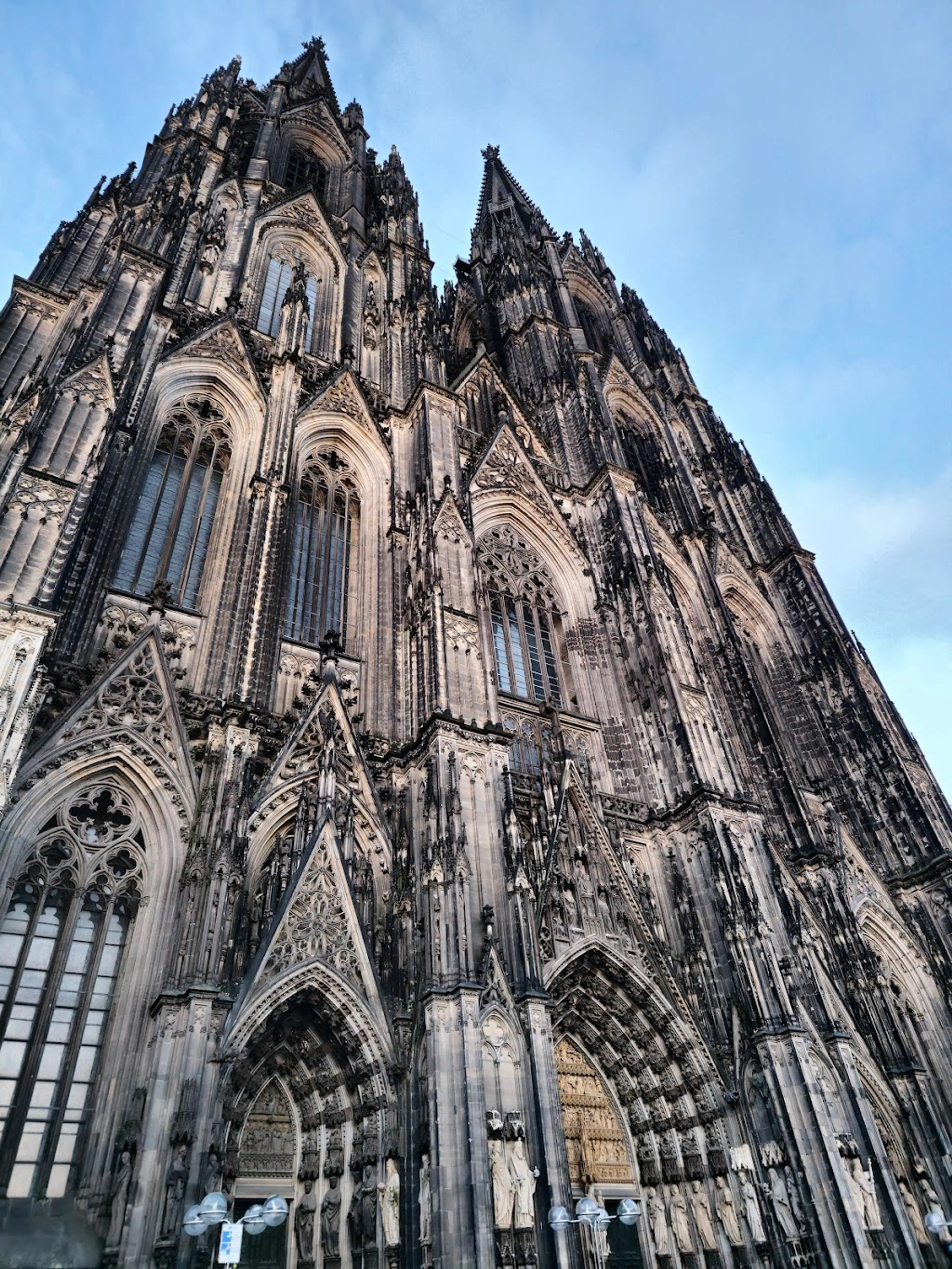
Cologne Cathedral
A renowned monument of German Catholicism and Gothic architecture and was declared a World Heritage Site in 1996.
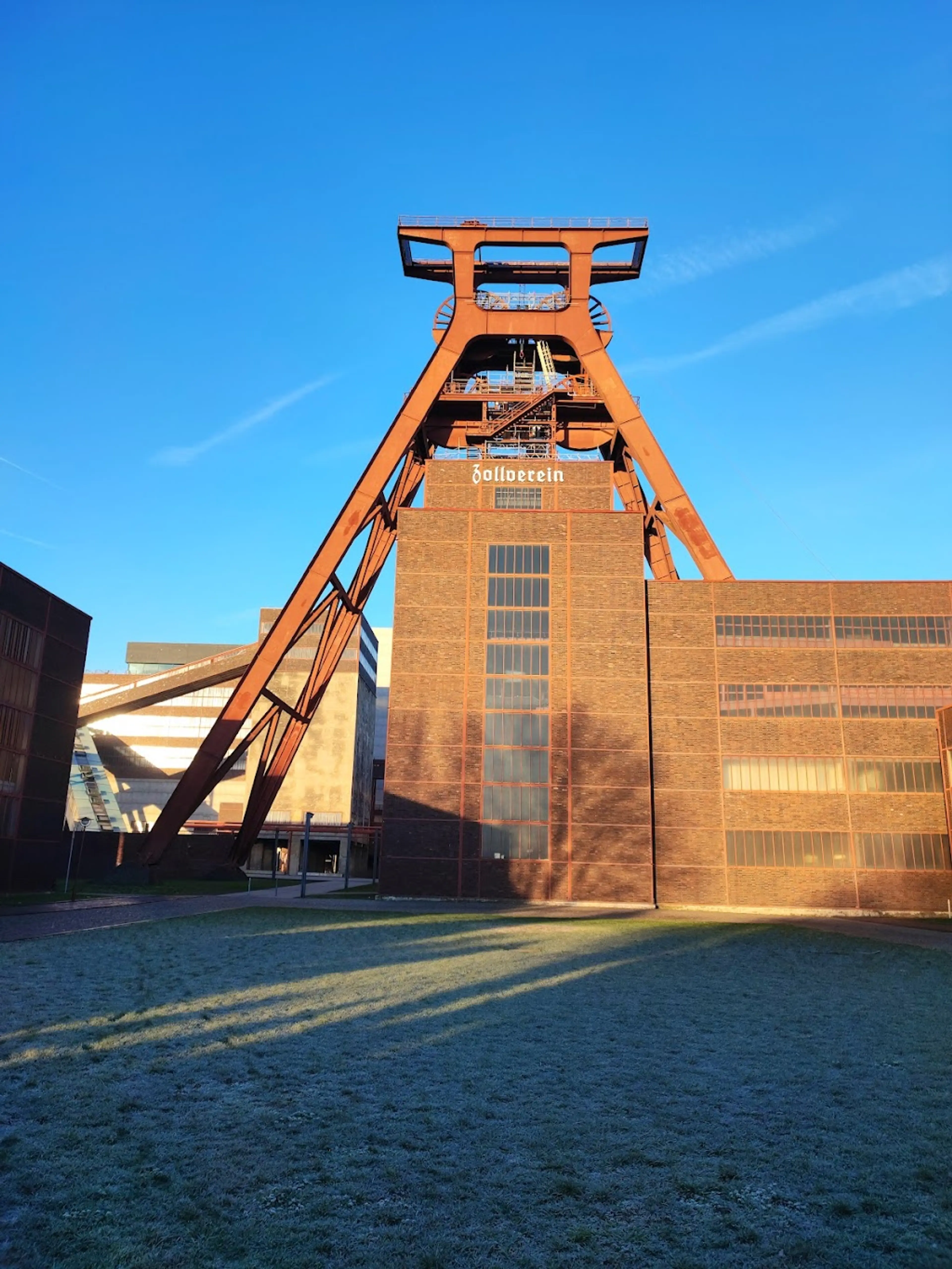
Zollverein Coal Mine Industrial Complex
A large former industrial site in the city of Essen. It has been a UNESCO World Heritage Site since 2001 and is one of the anchor points of the European Route of Industrial Heritage.
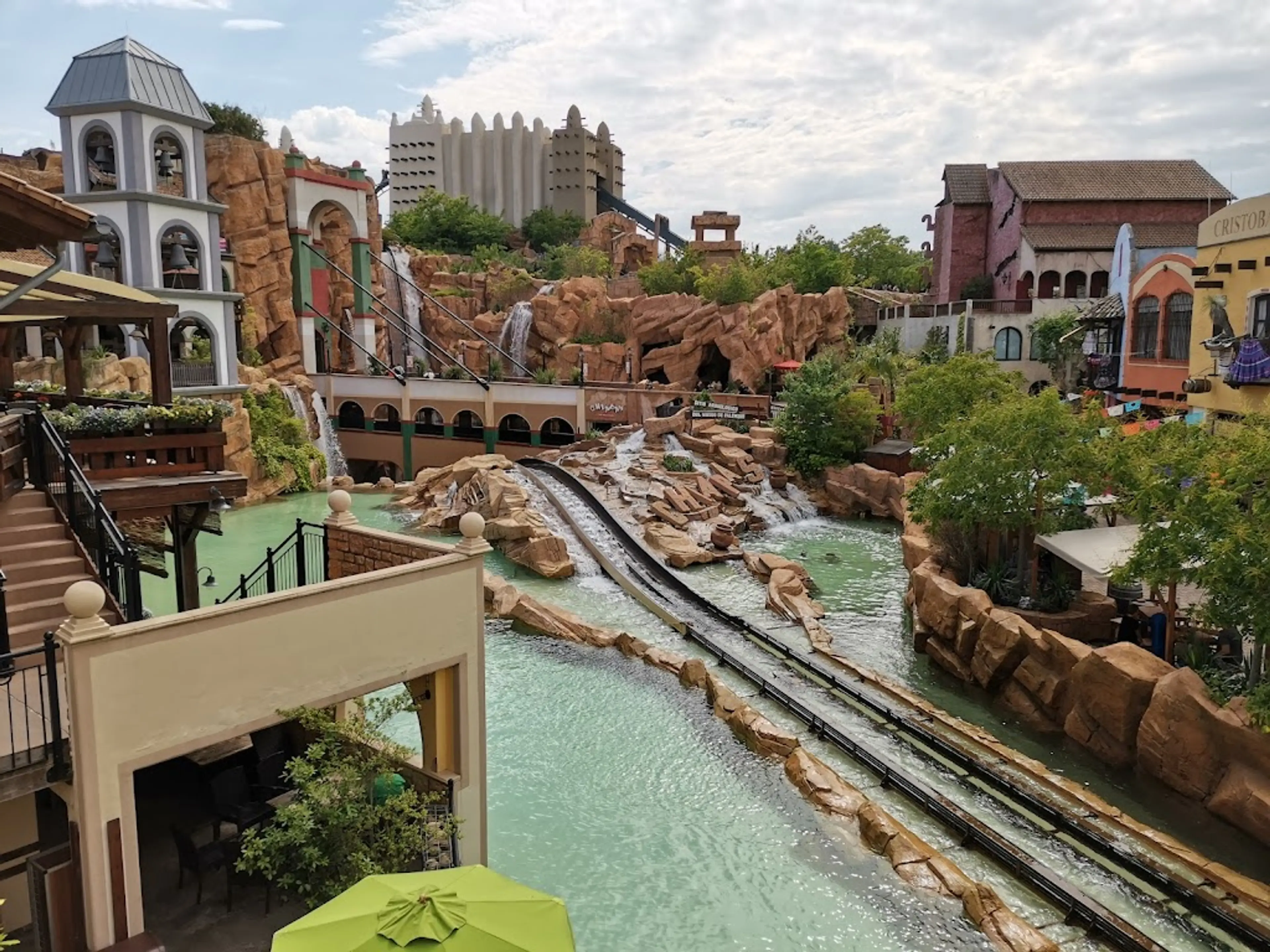
Phantasialand
A theme park in Brühl with attractions and shows for visitors of all ages.
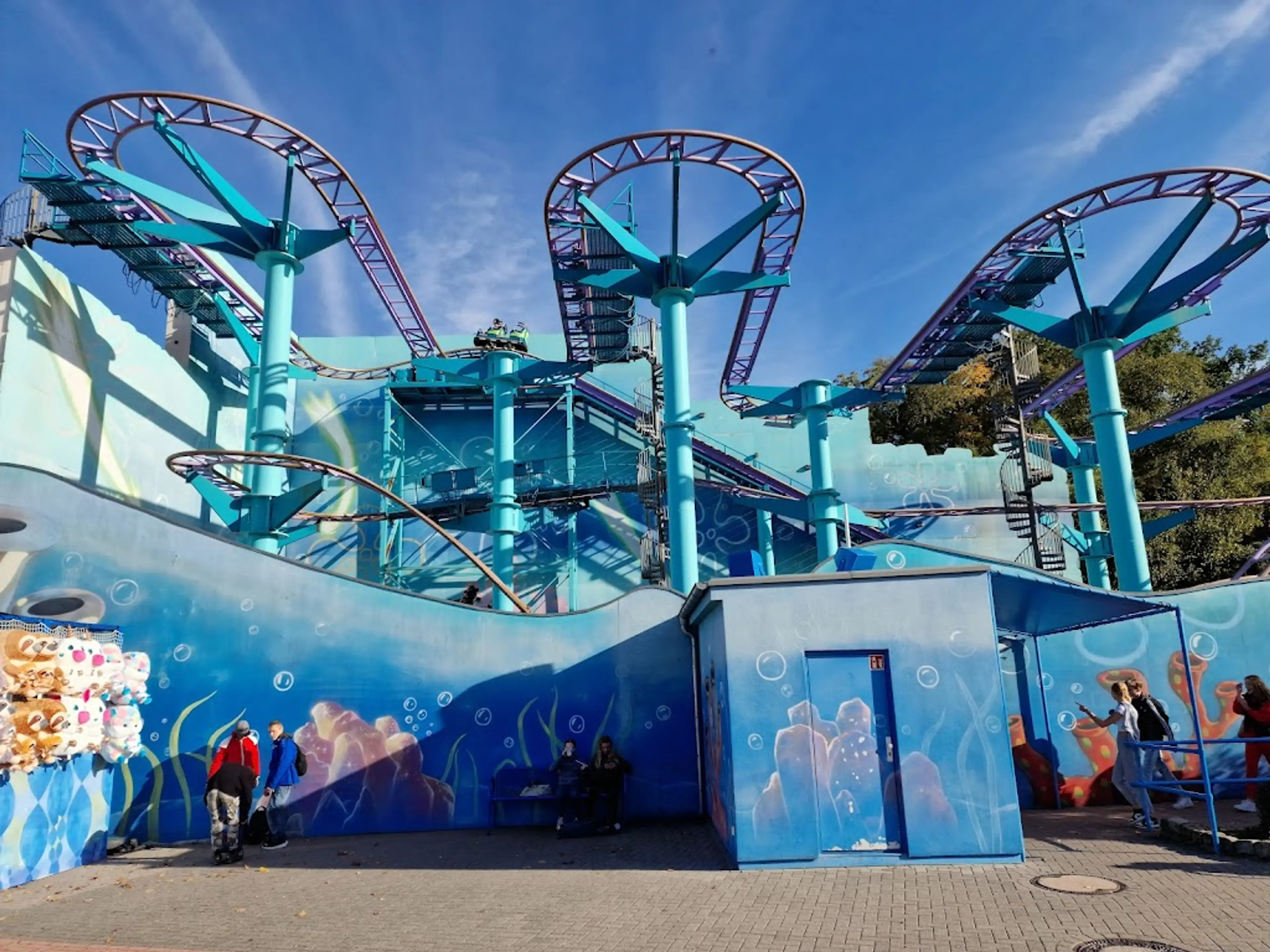
Movie Park Germany
A theme park with real movie studios in Bottrop-Kirchhellen. It consists of 7 areas based on movies and TV series.
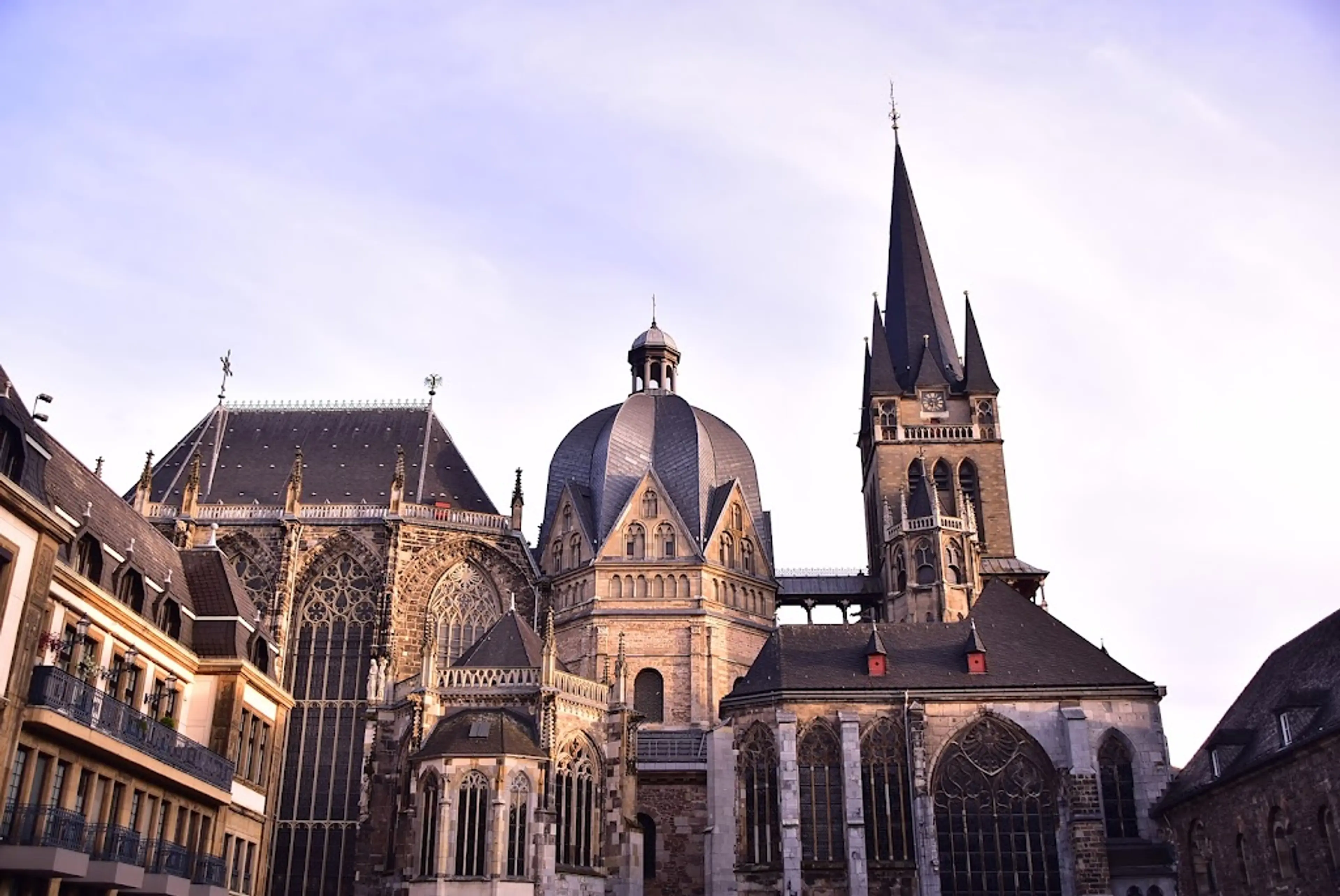
Aachen Cathedral
One of the oldest cathedrals in Europe and was constructed by order of the emperor Charlemagne, who was buried there after his death.
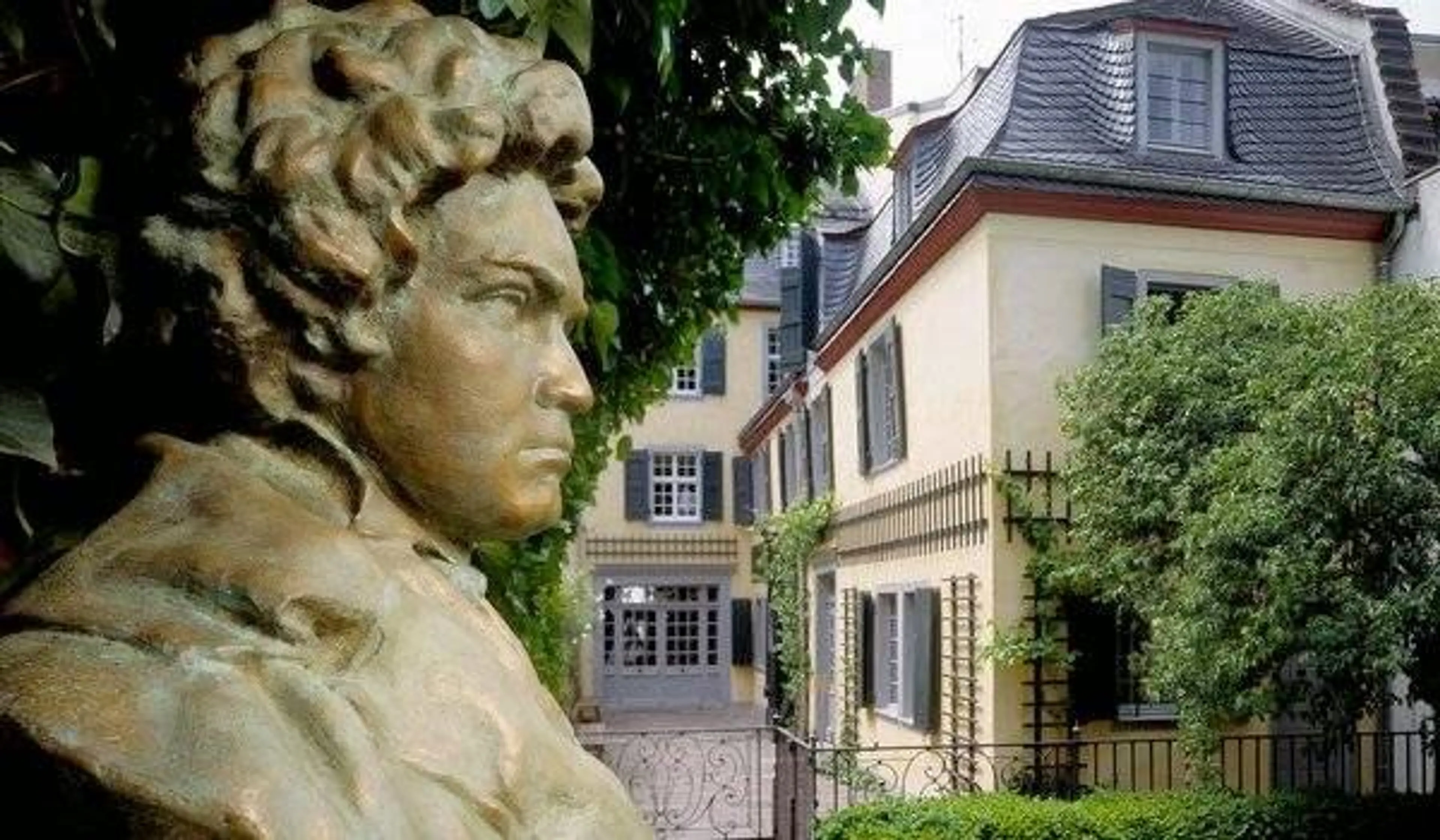
Beethoven House
A memorial site, museum and cultural institution serving various purposes. The centrepiece of the Beethoven-Haus is Beethoven's birthplace at Bonngasse 20.
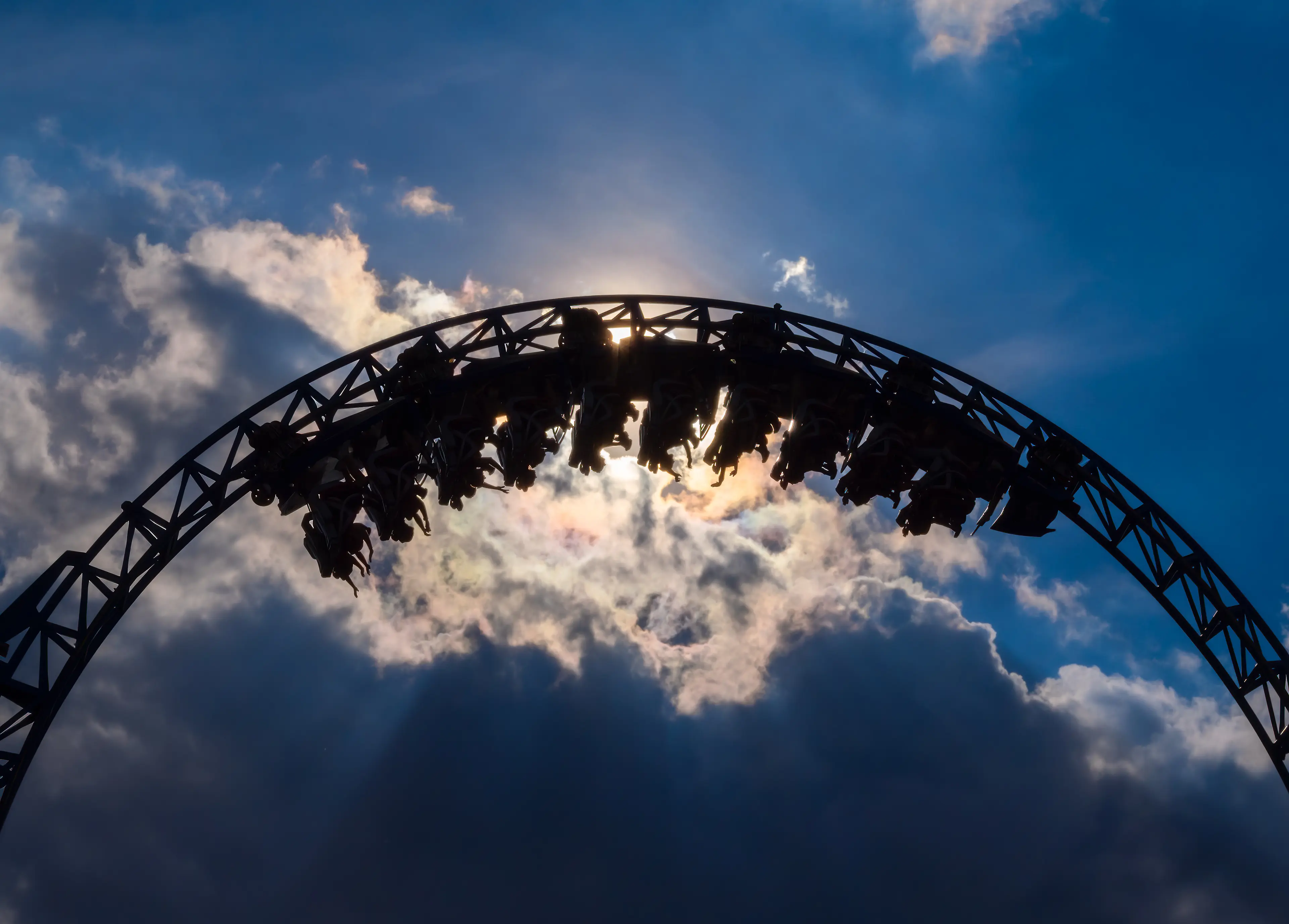
Europa-Park
The largest theme park in Germany and the second most popular theme park resort in Europe.

